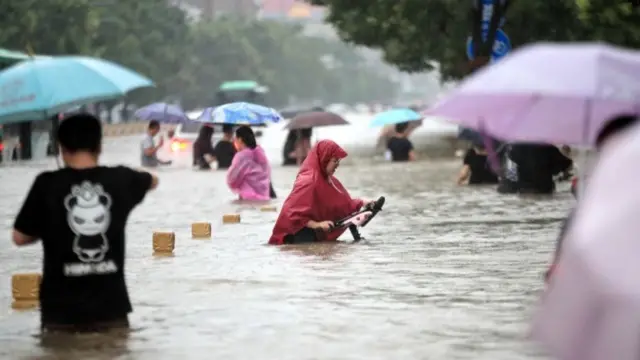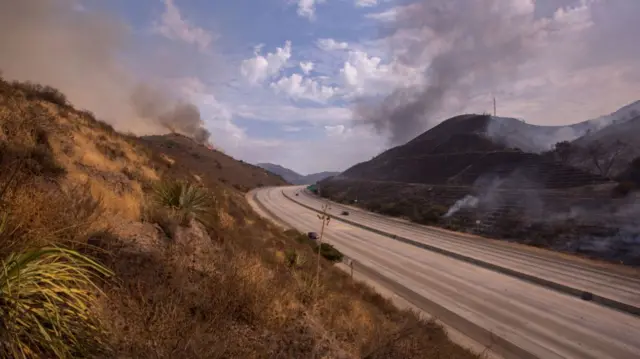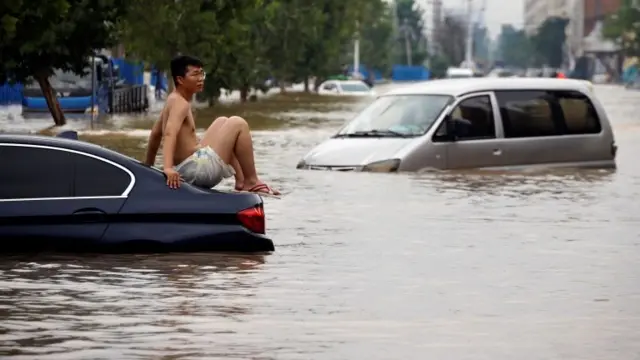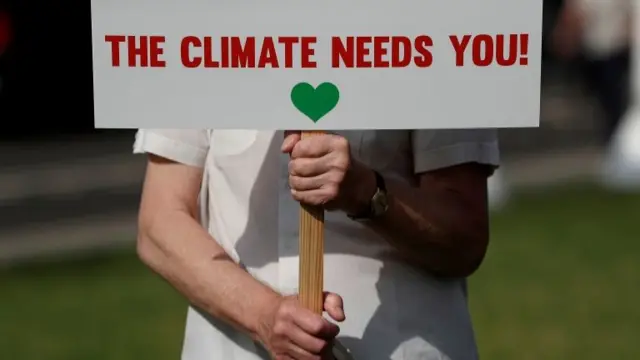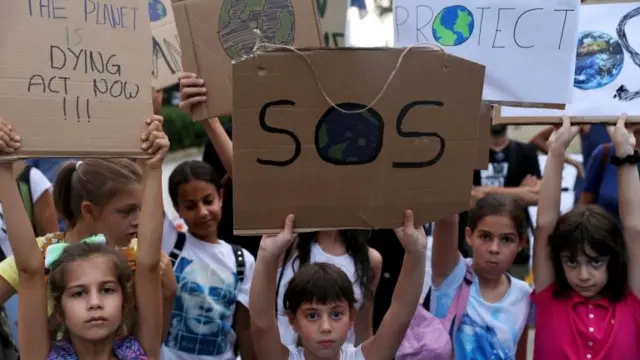What are wildfires?published at 08:25 BST 9 August 2021
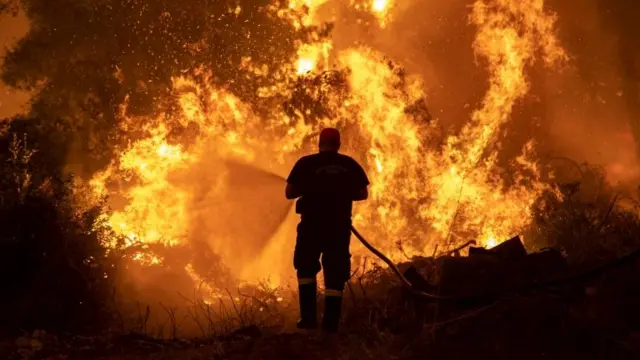 Image source, Reuters
Image source, ReutersWildfires are unplanned blazes that burn in natural areas, such as grasslands or forests.
They can start at any time and in any location, but the risk of them increases when it’s extremely hot and dry. Climate change increases the likelihood of this hot, dry weather.
According to the World Health Organization, about 2,400 people died worldwide from suffocation, injuries and burns related to wildfires between 1998 and 2017.
And at the same time, wildfires make climate conditions worse, by releasing large amounts of carbon dioxide and carbon monoxide into the atmosphere.
